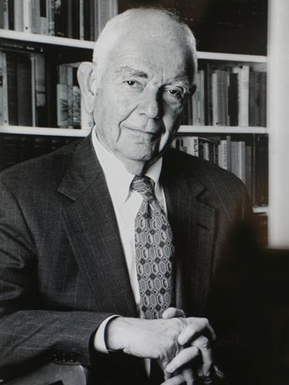Healing the Health-Care System
Two-day SPH event focuses on the country’s medical mess

No matter who is elected president in November, he’ll have to grapple with America’s ailing health-care system. More than 15 percent of Americans have no health insurance, and while the United States blows most countries away in terms of health-care spending per person, we are falling behind when it comes to life expectancy and infant mortality.
This week, Boston University’s School of Public Health will devote two days of lectures and discussions to the crisis and the contours of reform. The 2008 William J. Bicknell Lectureship in Public Health, taking place today and tomorrow, September 25 and 26, at 670 Albany St., will include both presentations and panels of patients, doctors, and policy wonks. Friday’s keynote address, Breaking the Gridlock: What the Next President Needs to Know, will be given by Rashi Fein, a professor emeritus of economics of medicine at Harvard Medical School and coauthor of the 2005 book The Health Care Mess: How We Got into It and What It Will Take to Get Out.
The focus today, from 4 to 6 p.m., will be on personal stories that exemplify what’s wrong with the current system. Donna Smith, who was featured in the Michael Moore documentary Sicko, will speak and a 10-minute screening of the film will follow. The discussion will shift to ideas for reform, anchored by Fein’s lecture, tomorrow, from 9 a.m. to noon.
“There are certain things the next president should know that we have learned from the history of health insurance in this country,” says Fein. One of the main lessons is that turning health care over to marketplace competition — what Fein calls “the entrepreneurial approach” — did wonders for medical advances and made some people rich. But it failed in its other objectives: controlling costs and delivering enough quality health care to meet the demand.
“We got for-profit hospitals,” Fein says. “Patients became consumers, and doctors became providers. A lot of people on Wall Street made a lot of money, and for the first time ever, insurance companies started delivering care. The result is a paradox of tremendous advances in science and medicine and no advancement on the social and economic arrangement to supply the product that all American taxpayers are helping to develop through places like the National Institutes of Health.”
Fein favors a solution that, put simply, eventually expands Medicare to cover all citizens. He acknowledges that such a reform is “not politically viable at this time,” and so he will outline potential compromise solutions that could be built on gradually in the years to come.
After all, he says, despite the massive number of Americans who are uninsured, “most people do have insurance, and while they may not be happy with the system, they’re worried about any program that looks like it might take away their insurance and replace it with something else.”
The William J. Bicknell Lectureship in Public Health was established at SPH in 1999 to bring stimulating and original thinkers to the school to stretch the minds of students and faculty. The lectureship is endowed by William J. Bicknell, founding chairman of the SPH department of international health, a professor of international health, and a professor of family medicine and sociomedical sciences and community medicine at the School of Medicine.
Chris Berdik can be reached at cberdik@bu.edu.
Comments & Discussion
Boston University moderates comments to facilitate an informed, substantive, civil conversation. Abusive, profane, self-promotional, misleading, incoherent or off-topic comments will be rejected. Moderators are staffed during regular business hours (EST) and can only accept comments written in English. Statistics or facts must include a citation or a link to the citation.